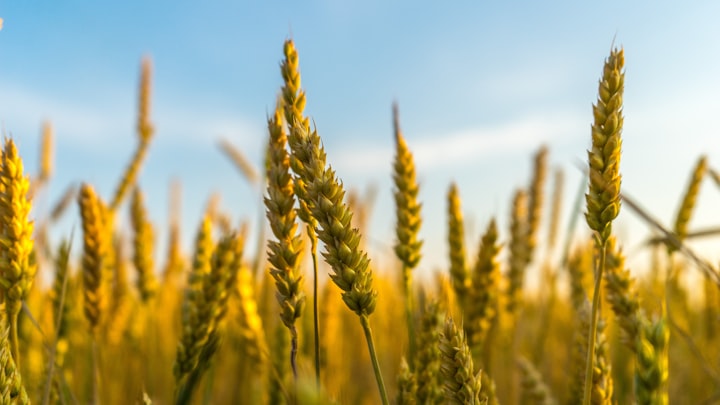AGRICULTURAL SCIENCE
Definition and Branches

Agricultural science is a branch of science that focuses on the study of agriculture, including the cultivation of plants and the rearing of animals for food, fiber, medicinal plants, and other products used to sustain and enhance human life. It encompasses a wide range of disciplines such as plant science, animal science, soil science, agricultural engineering, genetics, biotechnology, and environmental science.
Agricultural scientists work to improve agricultural productivity, sustainability, and efficiency by conducting research, developing new techniques and technologies, and applying scientific principles to address challenges in agriculture. They aim to enhance crop yields, improve livestock production, promote soil health, manage pests and diseases, conserve natural resources, and develop sustainable farming practices.
Agricultural science plays a crucial role in ensuring food security, improving rural livelihoods, promoting sustainable farming practices, and addressing global challenges such as climate change, population growth, and environmental degradation. By integrating scientific knowledge and innovation into agricultural practices, agricultural scientists contribute to the development of a more efficient, resilient, and sustainable agricultural sector.
BRANCHES OF AGRICULTURAL SCIENCE
Agricultural science is a broad field that encompasses several branches or disciplines. Here are some major branches of agricultural science:
Plant Science: Study of plant physiology, genetics, breeding, and biotechnology to develop new crop varieties with improved traits such as higher yield, disease resistance, and tolerance to environmental stresses.
Animal Science: Animal science involves the study of livestock production, management, and welfare. It includes disciplines such as animal nutrition, animal genetics and breeding, animal physiology, animal behavior, and livestock management. Animal scientists work to improve animal health, productivity, and the quality of animal products.
Soil Science: Examines soil properties, fertility, nutrient management, and soil conservation techniques to ensure optimal soil health for crop growth and minimize soil degradation.
Agricultural engineering: Agricultural engineering applies engineering principles and technology to solve agricultural problems. It involves designing and developing machinery, equipment, and systems for agricultural production, irrigation, post-harvest processing, and storage. Agricultural engineers also work on issues related to farm structures, water management, and environmental control.
Agricultural Economics: Agricultural economics examines the economic aspects of agriculture, including production, marketing, and policy analysis. It involves studying agricultural markets, farm management, rural development, agricultural finance, and agricultural policy. Agricultural economists analyze factors that affect agricultural profitability and sustainability.
Agronomy: Agronomy is the branch of agricultural science that focuses on crop production and soil management. It involves studying plant genetics, crop physiology, crop nutrition, crop rotation, and sustainable farming practices to improve crop yields and quality.
Horticulture: Horticulture deals with the cultivation, production, and management of fruits, vegetables, ornamental plants, and other crops. It includes disciplines such as pomology (fruit production), olericulture (vegetable production), floriculture (flower production), and landscape horticulture.
Soil Science: Soil science focuses on the study of soil properties, fertility, and management. It includes analyzing soil composition, nutrient availability, soil conservation, soil microbiology, and soil testing. Soil scientists work to optimize soil conditions for plant growth, prevent soil erosion, and maintain soil health.
Agricultural Biotechnology: Agricultural biotechnology applies biotechnological tools and techniques to improve agricultural practices. It involves genetic engineering, molecular biology, genomics, and bioinformatics to develop genetically modified crops, improve crop resistance to pests and diseases, and enhance crop productivity.
Agroecology: Agroecology integrates ecological principles and sustainable farming practices. It focuses on understanding the interactions between crops, livestock, and the environment. Agroecologists work to develop farming systems that conserve biodiversity, promote natural resource management, and reduce environmental impacts.
These branches of agricultural science work together to address various aspects of agricultural production, sustainability, and management. They contribute to improving food production, reducing environmental impacts, enhancing rural livelihoods, and ensuring a sustainable future for agriculture.





Comments
There are no comments for this story
Be the first to respond and start the conversation.